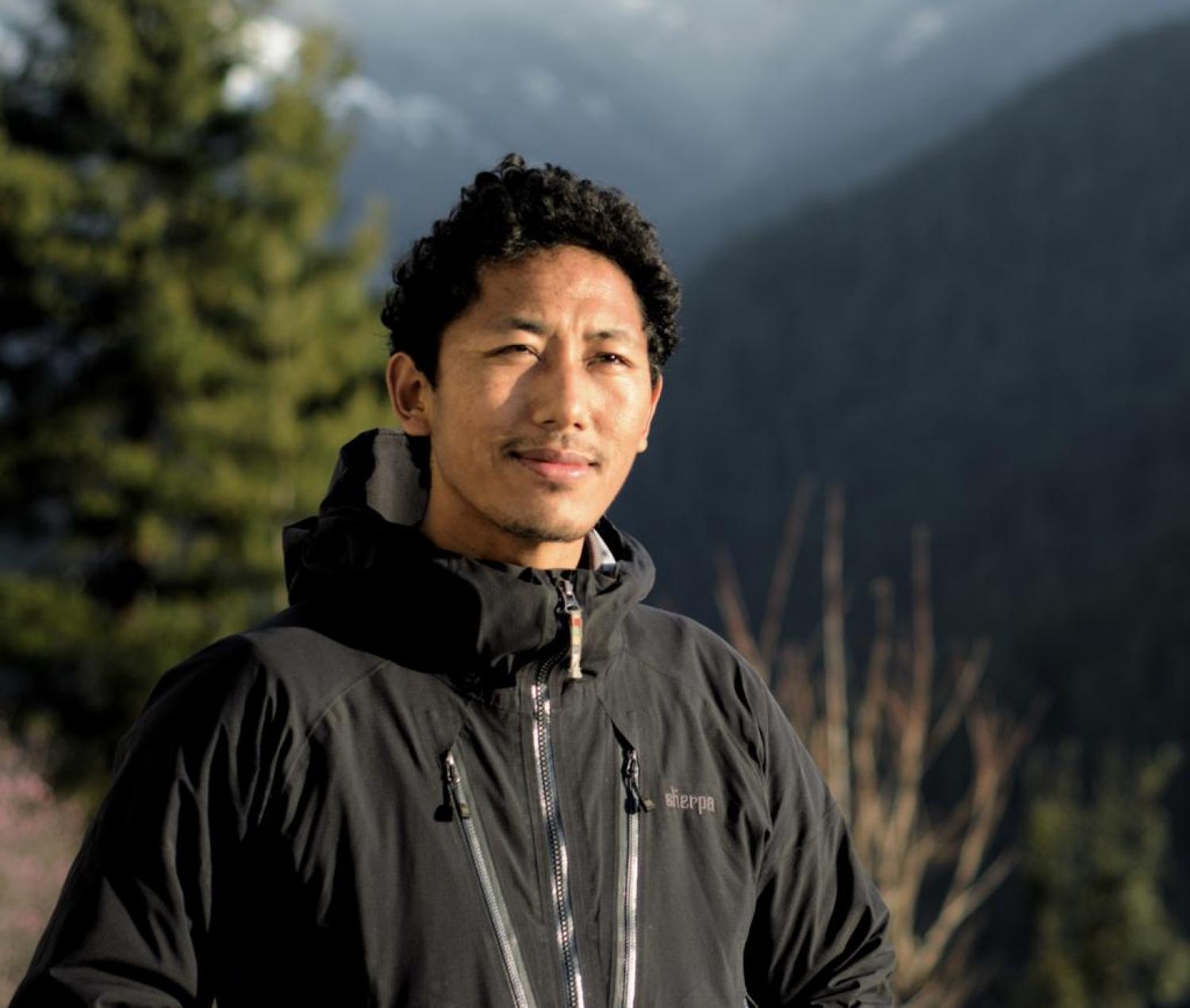Teaching Spotlight - Phurwa Dhondup

Phurwa is a 2nd year PhD student studying Geography. His research focuses on political ecology and more-than-human geographies of caterpillar fungus in Dolpo, Nepal to examine the processes of state making, Indigeneity and multispecies world-making in the high Himalaya. Phurwa was recently awarded a Teaching Excellence Award based on his teaching philosophy and dedication to his students. We asked Phurwa a few questions to learn more about him as a teacher and get to know him better. Read more below!
What is your favorite part about teaching?
My favorite part about teaching is the opportunity to meet and work with students from various backgrounds and interests. I also like the fact that teaching often forces you to step back and explain complex ideas in layman terms or in ways students can understand it.
Please tell us a bit about your pedagogical philosophy.
I employ an experiential, interactive pedagogy with a strong focus on analytical and conceptual learning. In other words, I help students to carry out hands-on activities that involve certain level of social exploration and self-reflection while engaging with key concepts and theories from the class. The objective of this approach is to provide toolkits for the students to realize their agency in examining the issue at hand and hopefully taking action.
What is a favorite teaching resource you would like to share with other graduate teachers?
I would say an assignment that tracks how students understanding of the key course concepts have changed over the period of the class. I usually have a reflection essay at the end that asks students to read their discussion posts from first three weeks and compare them with their most recent posts. The result is an amazing collection of essays that not only provide a glimpse into students' thought process but also important feedback (certainly more meaningful than the FCQs) to consider for the class.
What are your recommendations for continuing or increasing student advocacy and engagement?
Be compassionate and kind, especially to students who have different needs or backgrounds that makes their studies already challenging. This might mean many things including accepting late assignments, or providing opportunities to make up for classes.
Tell us a fun fact about you that is not related to your teaching and research.
I am a polyglot speaking six languages including Tibetan, my mother tongue.
What is a good book you have read recently and why did you enjoy it?
"Braiding Sweetgrass" by Robin Wall Kimmerer. It is beautifully written and weaves together compelling stories that simultaneously fuses, refuses and confuses binary concepts and categories we take for granted such as science/Indigenous knowledge, humans/nonhumans, living/nonliving, nature/society, and so on. It also speaks to my own epistemic orientation as a traveller between traditional and scientific ways of knowing.
If you could have dinner with anyone (living or dead), who would it be and why?
It would certainly be my late father who is a repository of boundless knowledge. I would spend the dinner listening to him tell the story of his life as a refugee in a borderland, or to one of many folk stories he likes to narrate from heart.

